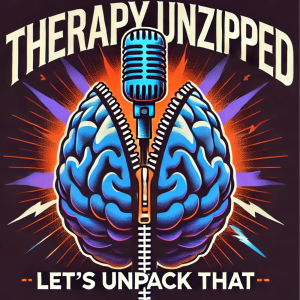

This week: Personality Disorders
Brett and Tom discuss some misunderstood disorders in mental health, personality disorders.
Personality Disorders are a group of mental health conditions characterized by enduring patterns of inner experience and behavior that deviate significantly from the expectations of the individual's culture. These patterns are inflexible and pervasive across many situations, leading to distress or impairment in social, occupational, or other essential areas of functioning. The onset of the patterns can be traced back to late adolescence or early adulthood, and they remain relatively stable over time.
In the DSM-5 (Diagnostic and Statistical Manual of Mental Disorders, 5th edition), personality disorders are categorized into three clusters based on symptom similarities, but it's essential to understand that there's a lot of individual variability within each category.
Cluster A (Odd, Eccentric)
Paranoid Personality Disorder: Pervasive distrust and suspicion of others, believing they have malicious intentions. Reluctance to confide in others due to fear that the information will be used against them.
Schizoid Personality Disorder: Pattern of detachment from social relationships and limited emotional expression. Preference for solitary activities and lack of interest in forming close relationships.
Schizotypal Personality Disorder: Eccentric behavior and thinking, as well as discomfort in close relationships. Might have odd beliefs or "magical thinking" (e.g., believing in telepathy).
Cluster B (Dramatic, Emotional, Erratic)
Antisocial Personality Disorder: Disregard for the rights of others, often crossing boundaries and breaking laws. Might exhibit deceitfulness, impulsivity, irritability, and a lack of remorse.
Borderline Personality Disorder: Intense episodes of anger, depression, and anxiety that may last a few hours to a few days. Patterns of unstable relationships, self-image, and emotions. May also exhibit self-harming behaviors.
Histrionic Personality Disorder: Pattern of seeking attention and being overly emotional. Might be uncomfortable when not the center of attention, might use physical appearance to draw attention, or be easily influenced by others.
Narcissistic Personality Disorder: Belief in one's own importance, seeking excessive admiration, and lacking empathy for others. May take advantage of others to achieve personal gain.
Cluster C (Anxious, Fearful)
Avoidant Personality Disorder: Feelings of social inadequacy and sensitivity to criticism or rejection. May avoid work activities or decline social invitations due to fears of criticism or rejection.
Dependent Personality Disorder: Excessive need to be taken care of, leading to submissive and clinging behavior. Difficulty making daily decisions without reassurance from others.
Obsessive-Compulsive Personality Disorder (not the same as Obsessive-Compulsive Disorder): Preoccupation with orderliness, perfectionism, and control. May be inflexible about morality, ethics, or values. Can't delegate tasks unless they're done their way.
We share our insights, experiences, and funny stories, all while helping to break the stigma of therapy and mental health. We also answer listener questions.
Send questions for us to answer at: questions@therapyunzipped.com
Links mentioned in this episode:
Check out these resources as well:
*Suggestible Mind Podcast
Movie Snippet: Blazing Saddles Track Title: Match Point Artist Name(s): Salon Dijon
This podcast is hosted by ZenCast.fm
Get new episodes of Therapy Unzipped automatically